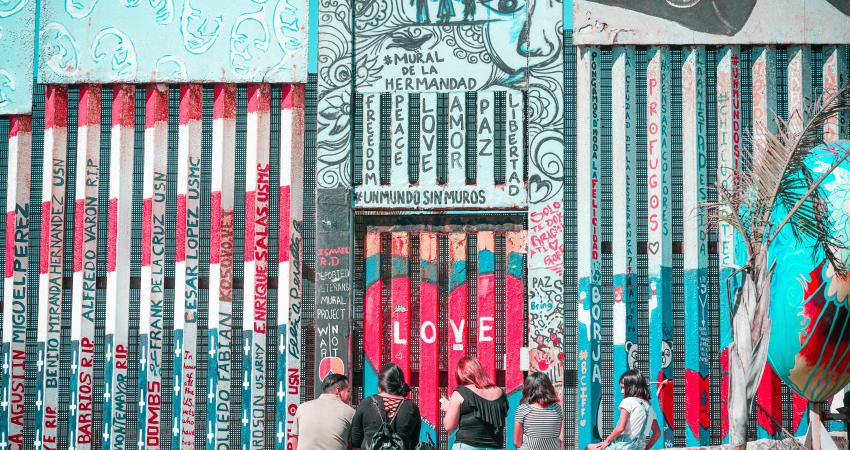How are migrants integrated into intra-regional destinations? Regional study and multi-sectoral panel present key findings.

May 12, 2023. San José, Costa Rica. Following the premise that a well-articulated integration process has the potential to boost local development that benefits both migrant and host communities, the International Organization for Migration (IOM) presented yesterday the regional study "The integration of migrants: experiences, good practices and challenges" which includes evidence on programs and projects that seek the social, economic, cultural and political integration of migrants in Belize, Costa Rica, Mexico, Panama and the Dominican Republic.
Among the main findings of the study are: first, the importance of migratory regularization and legal identity to facilitate an integration process in which migrants have access to formal employment and other services; second, limited regional and national frameworks for integration are identified, which creates challenges for developing regulations and programmatic documents; and finally, multisectoral work in which civil society plays a key role in promoting the active participation of migrants in integration initiatives. The recommendations and findings of the study can guide the criteria for follow-up actions to improve the integration of migrants in host communities.
As part of the launch of this regional study, IOM facilitated a panel with key actors from various sectors who discussed some experiences and good practices in this area. Participants included Michelle Duarte from the National Directorate of Community Development (DINADECO) in Costa Rica; Luis Edgardo Elvir Sierra, Vice Consul of the Republic of Guatemala in San Luis Potosí, Mexico; Luis Meneses, President of the Dominican-Venezuelan Chamber of Commerce; and Albis Thorp, Technical Project Assistant of IOM Panama.
The panel generated a dialogue on the need to coordinate efforts from different sectors for an efficient and comprehensive approach. Among the best practices mentioned, at the consular level, cultural activities that integrate their nationals as part of the integration process were highlighted. Also, the role of the private sector in the integration of migrants through actions like hiring or implementing projects within the framework of their corporate social responsibility. Finally, at the community level, the DINADECO project "Everyone can" was presented, which highlights the various contributions made by migrants in their communities and encourages their civic participation.
"IOM is committed to provide evidence and tools that facilitate the integration of migrants, and we trust that the findings of the study will contribute and serve as criteria for the design and development of policies and actions aimed at promoting the integration of migrants, prioritizing those who may be in situations of vulnerability, through cooperation between countries of origin, transit and destination," said Melanie Gomez, from IOM.
This regional study was developed within the framework of IOM's Regional Program on Migration and funded by the Bureau of Population, Refugees and Migration of the U.S. Department of State. This activity is aligned with Goal 16 of the Global Compact for Safe, Orderly and Regular Migration, which aims to empower migrants and societies to achieve full social inclusion and cohesion; as well as the Los Angeles Declaration on Migration and Protection in its Pillar I, which refers to the promotion of stability and assistance for communities of destination, origin, transit and return.
For more information on the study, please contact Estela Aragón, IOM Regional Research Officer, earagon@iom.int
Photo by: Barbara Zandoval